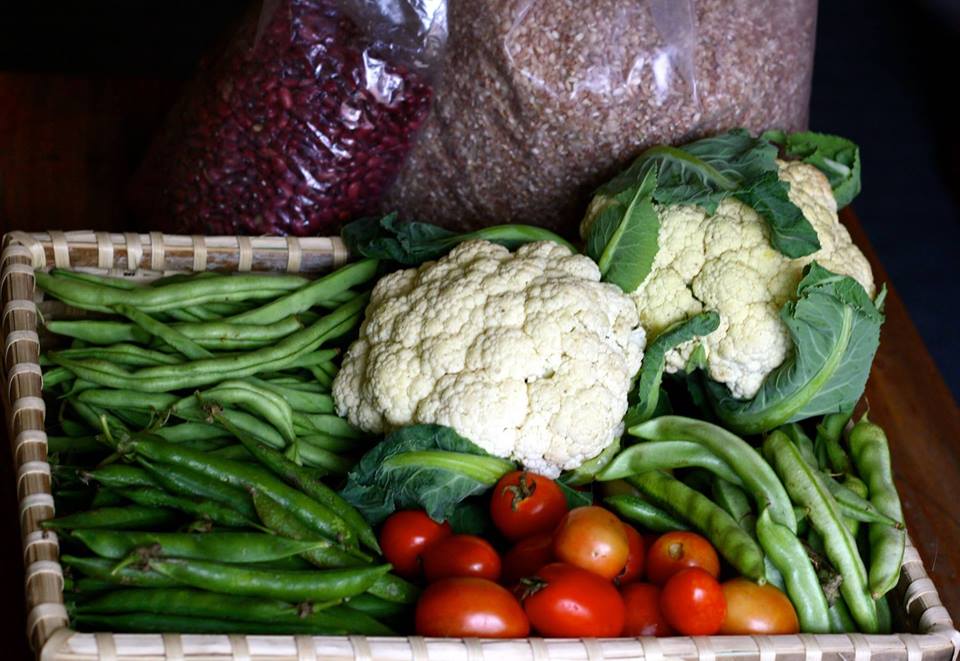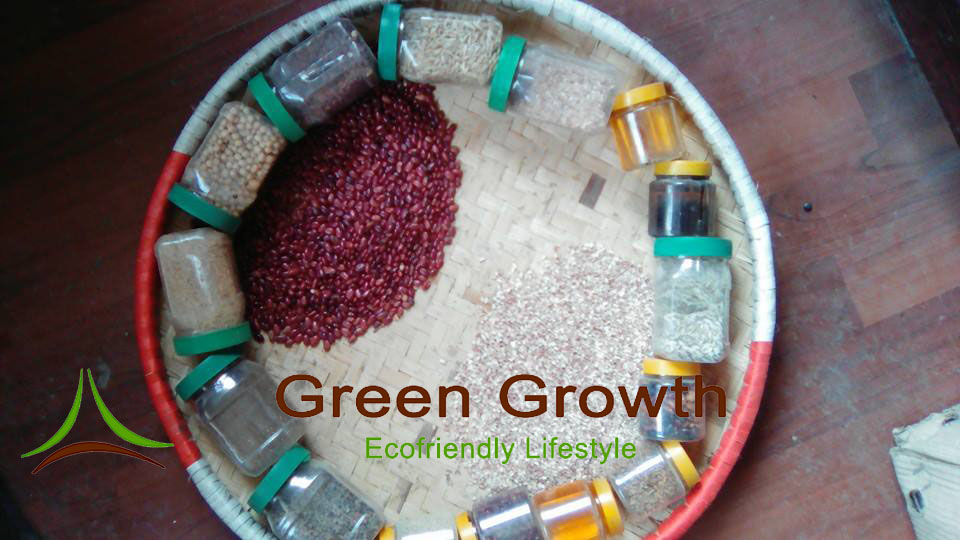
My name is Samita Kapali, 27, from Nepal. I have recently finished my Master’s in Rural Development from Tribhuwan University. This is my thesis year. I am researching green enterprises under the fellowship of WWF Nepal Hariyo Ban student grant, which concludes in March.
To assure better living standards for organic farmers and rural communities, an effective marketing system for their product is required. The large-scale products imported from India or China saturate the market. Depending upon them always is not a sustainable approach.
To encourage more farmers in organic agriculture, we need to professionalize it by securing the fair price for farmer’s product. In third-world countries like ours, the peasant society are always regarded as backward people.
Mainstreaming them will not be done only with awareness, we have to make them able to stand by themselves and it is possible if we give them opportunity. We often get to hear from them like they never got good price for their product, like they didn’t find their market nearby.
Marketing and channelizing play vital role in any business venture.
To encourage the agrarian society we need to make sure that they get benefitted directly. Hence this project addresses the supply chain management of organic and locally made product where the producer will be true beneficiary.
The global demand for agricultural products, including food, is rapidly increasing due to population
growth and shifts in consumption patterns.
The required increase in agricultural production is predominantly being achieved using intensive agricultural practices and chemical fertilizers expecting better yields. These practices have resulted in deterioration of soil quality and the overall surrounding ecology. The impacts of chemical fertilizers use for better yields are more pronounced through its impact on human health.
Today, more and more people—aware of these negative impacts of chemical use on agriculture—are opting for healthier alternatives, i.e. organic foods and locally made products.

Beside that my own research was not that satisfactory in terms of outcomes, I found most agricultural activities are subsistence based. We intend to manage the supply chain of organic foods and other systems associated with sustainability of the project. We have created two group entities: a producers’ cooperative and a consumers’ cooperative.
The Producer’s cooperative is actively engaged people from the farmers’ community in organic farming. They will, via the internet service, assist farmers with their online mechanism of selling their organic products.
The producer cooperative can also be a community learning hub for the farmers to share their experiences and ideas, with that it will be much easier to induce new technologies in community.
The seasonal products of the organic farm will be updated in online platform with their prices so the consumers can put up the orders and the producer can package the product according to the market demand and send to the delivery system (delivery will be done as Weekly Customized Bucket or Seasonal bucket) as per order.
Consumers co-operative will be formed to establish and maintain smooth communication among the producers and consumers. Through the producer and consumer co-operatives, the producers and consumers can bargain on the prices of the products and consensus will be build.
The consumer co-operative will also organize different recreational and educational programmes related to organic farming, importance of locally made product, etc.
Organic farm visits will be organized as recreational activities or learning camps targeting the kids to build up their knowledge about agriculture, food, health and environment. So our project will complete in four steps.
- Survey a couple of districts
- Site selection
- Formation of producer’s cooperative and formation of consumer’s cooperative
- Channelize
My benefit as the operator of Consumer’s cooperative will be the service charge from producer’s cooperative upon the successful channelization of their product.
We have already tested our prototype in small scale. We are collaborating with KTM Food Collective as a consumer cooperative and are willing to establish the producer cooperative in various places.
For that we already have bunch of producers willing to work with us. For example we are delivering the organic products from Jumla, Patale Gaun-Kavre, Lukla, Sindhuli, etc. to Kathmandu valley recently, with the help of Facebook page with name as Green Growth.
Currently we are serving over 100 families in Kathmandu valley but we are targeting to increase their numbers by increasing our consumers in different outskirt of the Kathmandu valley. For this we need to increase producers too. Hence with the help of research in couple of district, we are proposing to build at least five consumers cooperative from remote sites of those districts.
The Money will be used to for the survey, capacity building of community people and formation of producer cooperative. Formation of cooperative takes installation of internet, facilitating equipments while the survey takes foods and lodging for which the money will be spent. This project is planned to be accomplished within 12 months.
Blogpost and picture submitted by Samita Kapali (Nepal): misamo.k[at]gmail.com
The content, structure and grammar are at the discretion of the author only.
This post is published as proposal #372 of “YAP” – our “Youth Agripreneur Project”.
The first selection of the winners will be based on the number of comments, likes and views each proposal gets.
As a reader, you can support this speaker’s entry:
- Leave a comment (question, suggestion,..) on this project in the comment field at the bottom of this page
- Support the post by clicking the “Like” button below (only possible for those with a com account)
- Spread this post via your social media channels, using the hashtag: #GCARD3
Have a look at the other “YAP” proposals too!
As a donor, support young agripreneurs and sponsor this unique project.
Check out the side column for our current sponsors. “YAP” is part of the #GCARD3 process, the third Global Conference on Agricultural Research for Development.



Appreciate your work a lot ……all the best.
seems interesting… how could internet can strong tools for supply chain ?
Your works are inspiring….. I wish your efforts will be implemented sooner…
Dear saurav ji, the project use internet access to promote the organic foods among the consumers, currently we are into social media campaigning, beside that we are planning to develop a web based portal to make channelizing easy.thank you 🙂
Kudos to ur effort Samita!!
समिता !!! Congratulation !!! I am very happy to know your master degree thesis subject and your hard working task to complete it. It may beneficial to me too. Can you send me soft copy. If so I am very thankful to you. regards
rabindra man joshi
Rabindra sir, thank you for your appreciation!! once I will complete my report I will not forget to send the copy to you sir 🙂 And thank you all for those encouragement 🙂
wow your proiect work is in good topic. I like it and i wish it to be implemented soon and be useful … 👍👍
wow the topic of your project work is in good topic i like it and wish , your work to be successful and be implemented as soon as possible which is so useful for consumer
All the best Samita !!!!
Thank you!!! thank you all (Y)
G8, keep it up